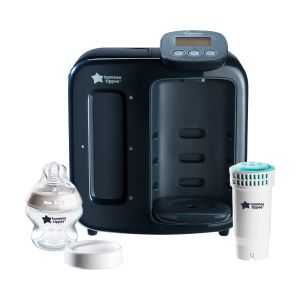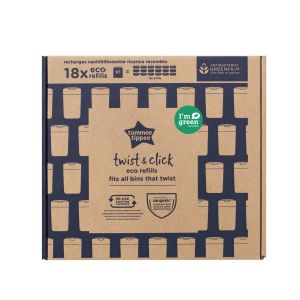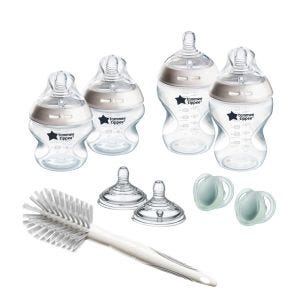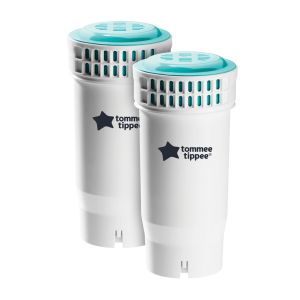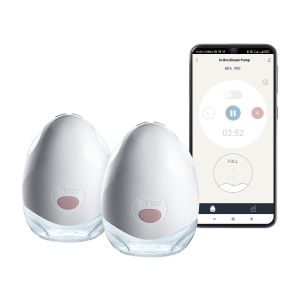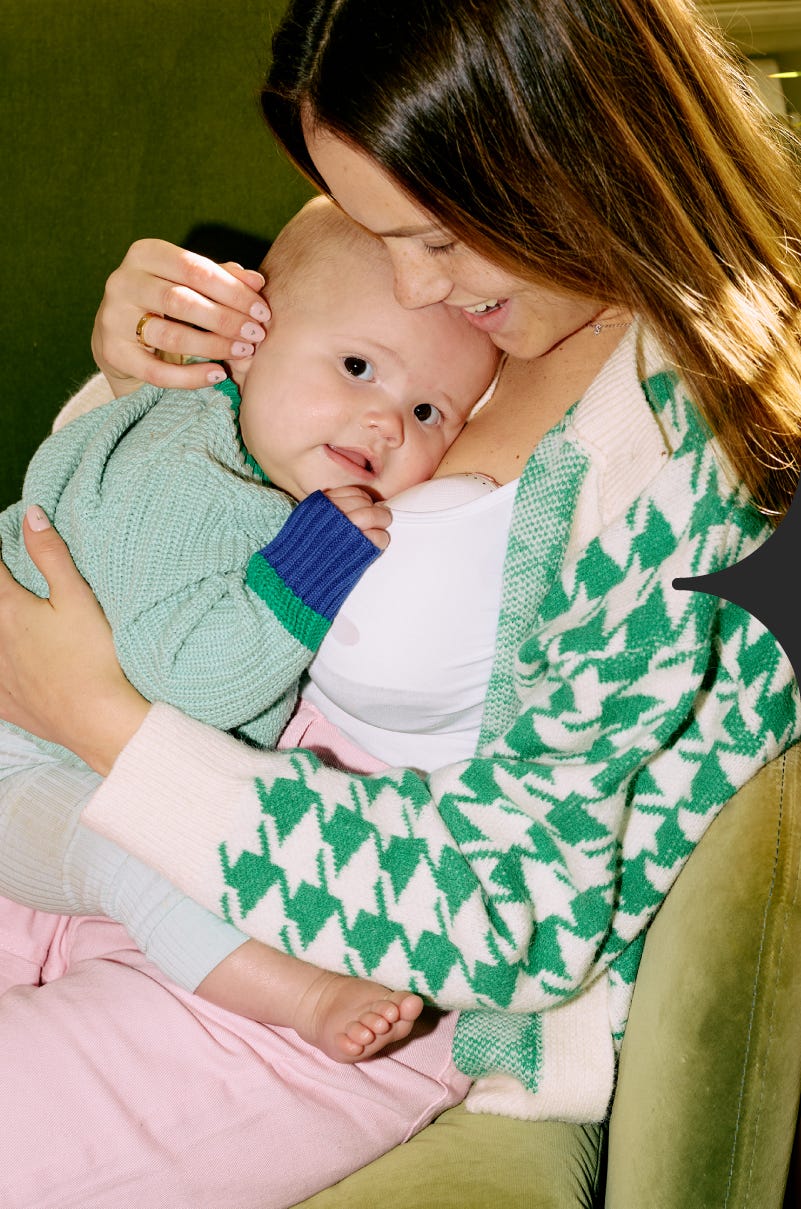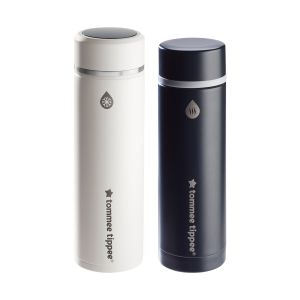
Tommee Tipps
If baby’s night-time feeds are disrupting your precious shut-eye, here are a few sleep-saving tips...
Our top tips for night feeds
Newborn babies can feed every 2-3 hours, which may mean many nights of disturbed sleep for parents...
It’s just one of the many reasons why being a parent can feel so tiring. If baby’s night-time feeds are disrupting your precious shut-eye, here are a few sleep-saving tips.
Keep the lights low
Babies don’t automatically know the difference between night and day, but you can start to get them used to the idea that they sleep when it’s dark. When your baby wakes to feed during the night, try to keep the environment as dark and quiet as possible, so it’s easier to encourage them to nod off again when they’re done.
- Use a nightlight for feeding baby rather than flooding their room with bright light. You’ll soon be a pro at finding what you need when the lights are low.
- Check out our adorable penguin nightlight or monitor room temperature and illuminate those night time feeds with the Groegg 2.
Be prepared
Anticipating everything you need for any eventuality is a parenting super power - have you seen what’s in those baby bags?! Whether it’s the clean nappies and a change of Pjs for your little one, or a midnight snack to help keep you going, think about what you need during your night feeds and keep it close at hand.
- If you’re bottle feeding, then preparing clean bottles in advance saves you precious extra minutes, especially at night.
- Our Perfect Prep machine can be a real sleep-saver, too. It allows you to pre-measure formula and serve up a bottle at the perfect temperature in two minutes flat.
Don’t make too much fuss
While it’s lovely to talk and interact with your baby, try not to give them any cues that suggest it’s playtime. Keep to a gentle lullaby, soothing and rocking to encourage your little one to settle back to sleep after their feed.
- Our cute and cuddly nursery pals listen out for baby’s cries and play soothing sounds and lullabies to help comfort baby through the night.
Easy feed, easy clean up
Whether you’re breast or bottle feeding, you’ll want to wear something comfortable and easy to clean up or change if your breasts leak or your little one doesn’t always keep all their milk down. It’s useful to have some dry towels or a muslin handy to mop up any mess.
Always burp baby after feeding
A grumbly tummy full of trapped air isn’t fun for anyone, especially if you’re trying to get your baby back off to sleep. Always wind your baby after a night-time feed, just as you would during the day time.
Don’t watch the clock
It’s easy to get obsessed with sleep, and start calculating how much you’ve had and how much you’ve missed, when trying to feed your baby back to sleep. But counting the minutes and watching the night slip away really won’t help. It’s also more likely to keep you awake once baby has dozed off.
Nap when you can during the day and ask friends or family to help out if you’re finding the early shift (not to mention the morning, afternoon and weekend shift) is taking it out of you.
With recent research suggesting that new parents get an average of less than 5 hours sleep per night in the first year of baby’s life, there’s no shame in getting an extra snooze when you can.
Night feed FAQs
Is it ok to not change baby’s nappy at night?
A full or wet nappy will need changing, but if they’re clean and comfortable, then there’s no need to disturb your little one more than necessary by changing them.
Always change your baby’s nappy before bedtime.
How often should I feed a newborn at night?
Parents with newborns can sometimes be surprised at how often they need feeding. Your new arrival has a tiny tummy that feels full very quickly, so for the first few weeks, newborns may need feeding every 2-3 hours. That means right through the night too, so it’s no wonder that new parents can feel a little sleep deprived.
The good news is that as they grow babies need fewer night feeds. By the time they’re around 4 months old, most babies will need 1-3 night feeds. This drops to 1-2 night feeds when they reach 6 months. Of course, this is provided that your little one is feeding well during the day.
Most babies wake themselves up through the night if they’re hungry. It’s best to let them do this unless they have weight or other health issues that mean they need waking for a feed. If you have any concerns about how your baby is feeding, then talk to your GP or health visitor.

